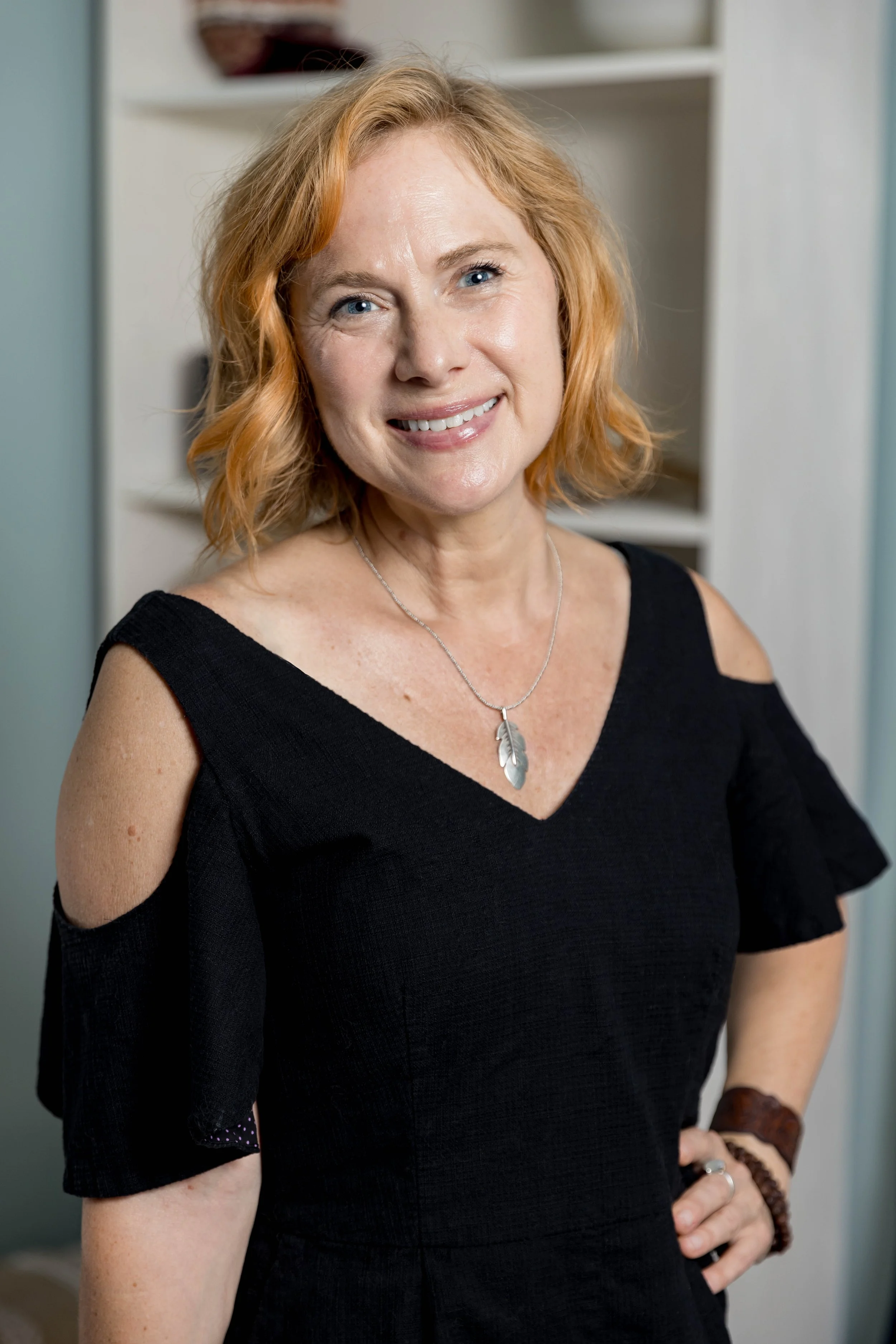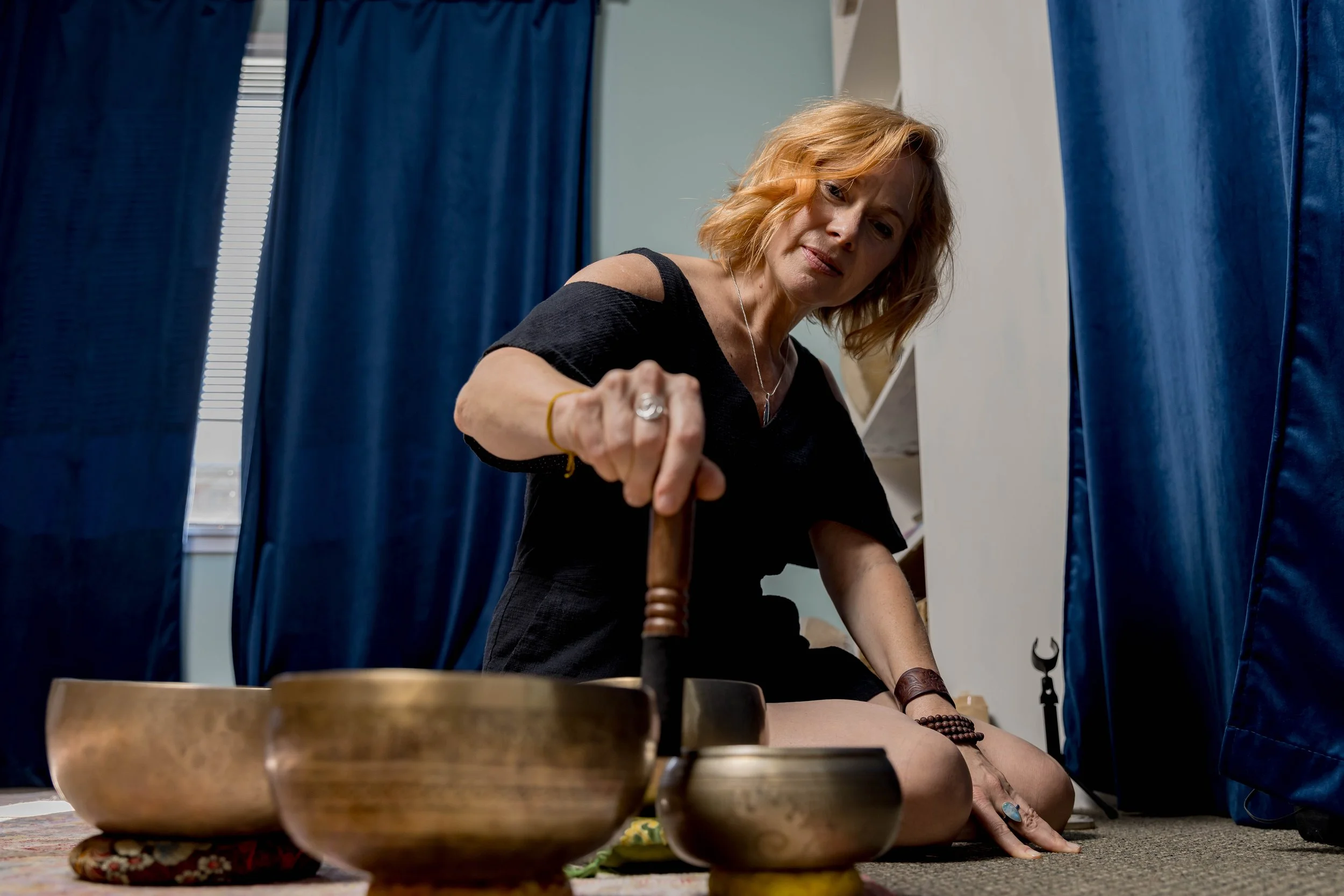
When you still feel stuck, exhausted, or overwhelmed after trying everything - and know your healing goes deeper than conventional medicine can reach
Hello!
I’m Dr. Marie Rodriguez, a licensed Naturopathic Physician, Herbalist, and Master Energy Healer with 25 years of experience who has guided more than 10,000 client sessions.
I developed Integrative Energy Healing, a proprietary approach that addresses the nervous system patterns, energetic blocks, ancestral imprints, and core disruptions that conventional medicine often misses.
My approach supports deep healing by:
Regulating the nervous system
Resolving past trauma
Repairing energetic anatomy
Catalyzing the body’s innate healing capacity
My healing work is informed by years of deep inner transformational work, trauma resolution and extensive spiritual study, practice, and integration for myself and thousands of clients.
Over time, the focus of my healing practice has evolved toward early and pre-verbal imprints, inherited burdens, and core energetic disruptions - the deeper layers that often drive persistent symptoms when other approaches haven’t reached far enough.
I work with people who feel stuck, depleted, overwhelmed, or disconnected - especially when they’ve already tried everything and sense that there’s something deeper at play.
What to Expect in Our Together
Sessions are primarily offered virtually, with limited in-person availability.
Each session is guided by what’s most relevant to your current needs, and I take care to create a safe, grounded, and supportive healing space. Initial sessions include a more in-depth intake, while follow-up sessions typically involve a shorter check-in to track progress, see what has changed and what is ready to be addressed next.
We always co-create an intention before each integrative energy healing session, and then move into opening sacred space and grounding. You rest comfortably while I track subtle cues from your chakra system and energy body. Sometimes there is a dialogue supporting your release and process, and in other instances you may experience a very deep state of rest.
This system of healing weaves energy work with naturopathic and herbal medicine - addressing physical, emotional, and energetic layers within a single, cohesive approach. The specific methods used in session are customized according to your your needs in the moment, rather than a predetermined protocol.
Your healing experience may include:
Shamanic and bloodline (ancestral) healing
Family constellation therapy
Sound healing
Chakra cleansing
Craniosacral therapy and subtle energy work
Plant spirit medicine
Energy reclamation and repair
Sessions are responsive rather than scripted, drawing from a wide range of therapeutic lineages and methods as needed. Most people leave feeling clearer, more centered, and more connected - often with a sense that something fundamental has shifted.
Integrative Energy Healing sessions may incorporate naturopathic assessment, treatment planning, and herbal medicine as appropriate.
Client Reflections
Tremendous healing from trauma and emotional pain
“Dr. Marie is an exceptionally skilled healer. During our remote sessions, I experienced healing from deeply held trauma and emotional pain - with changes I could clearly feel. The work was powerful, effective, and lasting.” - LM
A safe container for deep healing
“Dr. Marie is a true healer. In our remote sessions, she consistently creates a safe and compassionate container that allows deep work to unfold. From that space, she expertly guides me to access my own innate healing wisdom.
She has an intuitive ability to know when and how to integrate medicine, shamanic work, herbalism, energy healing, and ancestral healing. In a healthcare system where I’ve often felt powerless, working with Dr. Marie has been the opposite. I feel supported by a knowledgeable, trustworthy guide on a path toward personal power, wellness, and wholeness.” - EB
After trying everything, something finally shifted
“I was blown away by what we accomplished - it still feels surreal. Dr. Marie helped me work through deeply rooted ancestral issues I didn’t even realize were affecting me, in ways I didn’t think were possible.
She brings extraordinary depth, presence, and care to her work. I left the session feeling lighter, more at peace, and deeply grateful for her expertise and the healing that unfolded.” -MF
Experience Dr. Marie’s Shamanic Sound Healing
A 60-minute live shamanic sound healing journey using sacred sound to support energetic clearing, grounding, and nervous system regulation.


